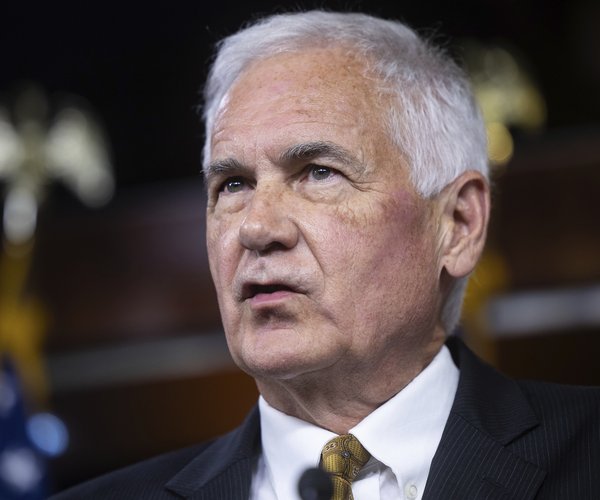Rep. John Duarte, R-Hughson, has signed on as a co-sponsor of the Dignity Act of 2023, a bipartisan bill that aims to address the humanitarian crisis along the United States’ southern border.
The Dignity Act, which was first introduced in the 117th Congress by co-authors Rep. Veronica Escobar, D-Texas and Rep. Elvira Salazar, R-Florida and reintroduced in the 118th Congress, provides $25 billion to secure the border.
Monthly encounters between U.S. Border Patrol agents and migrants attempting to enter the United States at the U.S.-Mexico border remain at levels not seen in more than two decades, according to government statistics.
“Our system is broken,” said Duarte, a freshman congressman who represents the 13th District, which includes portions of Turlock. “A humanitarian crisis is devastating both sides of our border, working families are forced into the shadows, border agents are left unsupported, employers are criminalized, and families are driven apart.
“I said I would work with both Democrats and Republicans on a bipartisan immigration bill, and I meant it.”
The bill aims to reform several aspects of the immigration system. Among them:
* Granting pathways to citizenship, including through the New Dignity program, certified agricultural worker status, or service through the armed forces.
* Granting legal status to undocumented immigrants already living the U.S. with the possibility of earning citizenship.
* Establishing new pathways for asylum seekers and creating new regional processing centers
* Creating new legal pathways for economic migrants and unaccompanied minors.
H.R. 3599 has been referred to a multitude of House committees — Judiciary, Homeland Security, Ways and Means, Agriculture, Transportation and Infrastructure, Budget, Education and the Workforce, Foreign Affairs, Oversight and Accountability, Intelligence (Permanent Select), Financial Services, Armed Services — and is now awaiting the amendment/mark-up process before it reaches the House floor.
The last time Congress passed immigration reform was in 1996, when President Clinton signed into law the Illegal Immigration Reform and Immigration Responsibility Act.
You can read a summary of the legislation go to:https://bit.ly/3J14hzK or for a section-by-section analysis go to: https://bit.ly/3P7ZfoL
Alanis backs ACA 12 to pass ‘Alexandra’s Law’
State lawmakers, law enforcement officials, local leaders and family members of fentanyl victims gathered in Sacramento this week to announce the introduction of the Assembly Constitutional Amendment 12, which would ask voters to implement “Alexandra’s Law.”
The law would require convicted fentanyl dealers to receive a warning that continuing to sell fentanyl is extremely dangerous. That warning would empower prosecutors to file homicide charges if the dealer continues to sell fentanyl and causes a death.
“The voters should have a choice to weigh in on this debate directly,” said Assemblymember Juan Alanis, R-Modesto, who represents Turlock. “Let’s let the people themselves decide on both the urgency and what they want to see as the outcome of this very important discussion.”
ACA 12 is backed by a bipartisan coalition of more than two dozen lawmakers. Earlier this year, a similar proposal in the State Senate garnered the support of a majority of Senators, including 13 Democrats.
“Alexandra’s Law is a simple and reasonable approach to holding drug dealers accountable when they knowingly murder Californians with fentanyl,” said Matt Capelouto, whose daughter’s fentanyl poisoning inspired Alexandra’s Law. “It will give law enforcement the ability to stop someone who continues to sell a drug that results in instant death.”
As a legislative proposal, ACA 12 will need to be passed by both houses of the Legislature, and would then be placed before voters.





